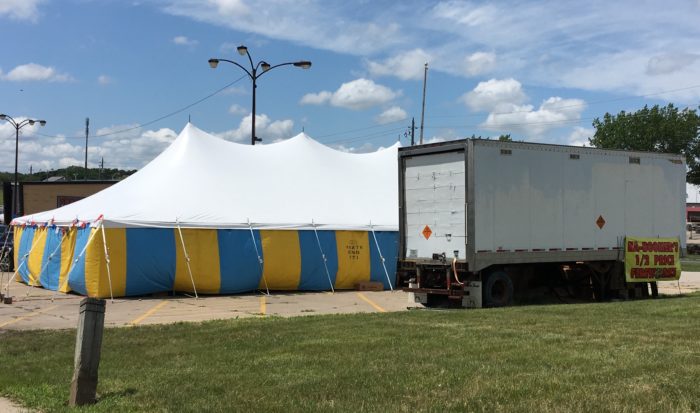Iowa cities may regulate fireworks sales through zoning or permitting rules, as long as those ordinances do not ban such sales or impose burdens on fireworks sellers not affecting other merchants, a federal court held this week.
Nebraska-based Bellino Fireworks had charged in the lawsuit that ordinances adopted by the cities of Ankeny, Boone, Johnston, and Pleasant Hill violated Iowa law, federal code, and impermissibly interfered with the company’s contracts and business relationships.
The suit cited Senate File 489, the 2017 law legalizing fireworks sales for the first time in eight decades, and House File 295, the 2017 law restricting actions by local governments. That law’s primary purpose was to nullify county-level minimum wage increases, but other sections (inspired by proposed local bans on plastic bags) held that cities or counties “shall not adopt an ordinance, motion, resolution, or amendment that sets standards or requirements regarding the sale or marketing of consumer merchandise that are different from, or in addition to, any requirement established by state law.”
U.S. District Court Judge Rebecca Goodgame Ebinger found in favor of the cities on all grounds. During the course of the litigation, the court agreed that initial versions of the ordinances, requiring additional permits for fireworks sellers or total bans on sales out of temporary structures “were likely preempted” by state law. Specifically, the court granted Bellino’s request for a temporary injunction against “Ankeny’s requirement for a special use permit, Boone’s temporary structures ban, Johnston’s temporary use permit, and Pleasant Hill’s temporary structures ban, special sales permit requirement, and additional insurance coverage requirements.” All of the cities subsequently altered their ordinances.
Judge Goodgame Ebinger found the current forms of the city rules “are not preempted by state law.” Three of the cities restrict fireworks sales to industrial zones only or industrial and commercial zones. “Zoning concerns the use of a building, not the sale of merchandise and thus falls outside the prohibition of HF 295.” Similarly, Senate File 489 “does not dictate in which zones fireworks must or may be sold; it instead allows for the sale of consumer fireworks and contains no language” limiting zoning power.
In addition, the court found Johnston’s requirements consistent with state law, because “a zoning compliance certificate does not concern ‘the sale or marketing of consumer merchandise'” and the city ordinance on temporary structures “is not fireworks-specific.” Rather, it applies to any retail sales out of tents.
The court held that Bellino lacked standing to challenge other aspects of city codes, since the company had not shown it was harmed by regulations on site plans, parking and loading, additional setbacks, nuisance abatements, or storage of supplies.
Bellino had further asserted the cities violated the company’s due process rights, but the court held such claims require proof that the government action was “truly irrational,” “so egregious or extraordinary as to shock the conscience ” Judge Goodgame Ebinger determined the fireworks sales regulations “do not shock the conscience nor are they arbitrary or capricious.” Furthermore, “there are rational bases” for the ordinances, grounded in public safety concerns.
As for the Nebraska company’s claims regarding tortious interference with contracts and prospective business relationships, “Zoning is a well-established municipal function.” The timing of the city ordinances do not suggest any “improper interference”; state law on fireworks sales went into effect only weeks before the summer 2017 season was to begin.
Finally, the District Court held that city governments were immune from the plaintiff’s other claims: “The action of passing ordinances related to zoning for the sale of consumer fireworks is a discretionary function and thus provides immunity to the Cities under the Iowa Code.”
The full text of the July 19 ruling follows:

